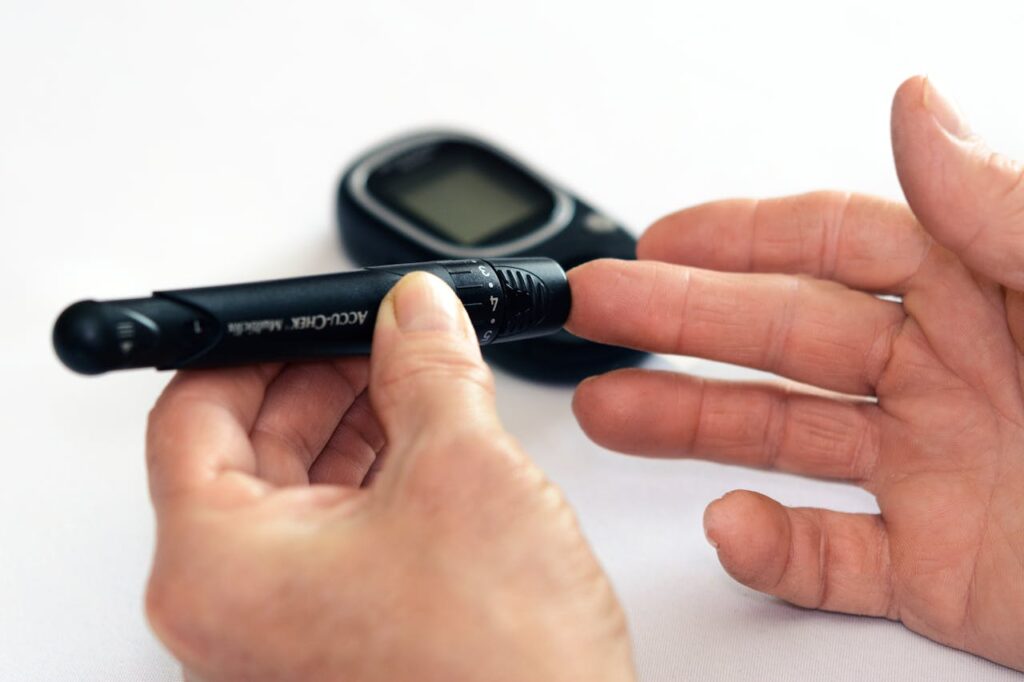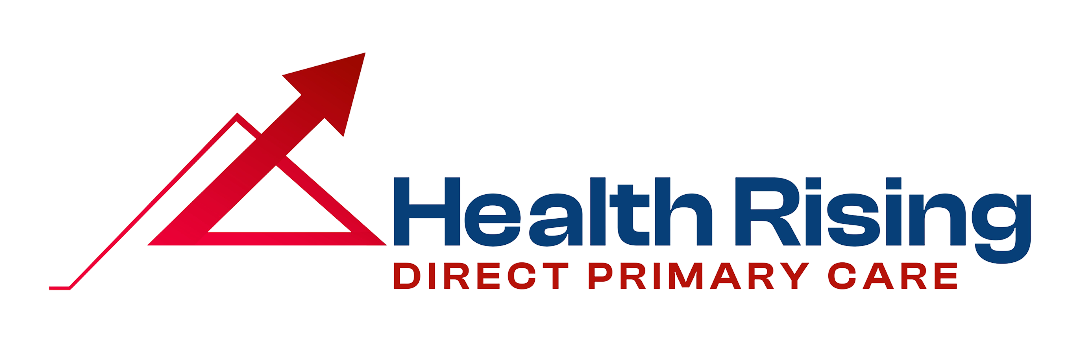Most people walk into their doctor’s office carrying some version of the same question: Am I missing something? With so many recommendations, online checklists, and health trends, it’s easy to feel overwhelmed about which tests are truly necessary. Preventative health screenings often sound like the right step—but which ones actually make a difference?
At Health Rising DPC, we believe in cutting through the confusion. Preventative care works best when it’s personalized. Not every test is necessary for every person, and getting screened doesn’t guarantee health unless it’s done thoughtfully. This blog explores what preventative health screenings you actually need and when, from a Direct Primary Care perspective rooted in long-term health, not fear-based checklists.
Why Preventative Health Screenings Help Shape Better Health
Preventative health screenings are designed to catch potential issues before they become serious. But not all screenings are created equal. Some tests truly improve health outcomes. Others may lead to false alarms, unnecessary treatments, or anxiety without benefit.
That’s why context matters. A blood test or scan should never replace a full conversation. The purpose of screening is not just to find problems, but to help guide your health trajectory based on what’s most likely to help you—not just the average person.
How Direct Primary Care Personalizes Preventative Testing
In a traditional system, screenings are often ordered by protocol or insurance guidelines, with little time for discussion. In Direct Primary Care (DPC), things work differently. We focus on your personal history, lifestyle, and values to tailor a prevention plan that fits.
DPC gives us the time to talk about what each test means, when it’s truly helpful, and what to do with the results. There’s no middleman deciding what’s covered or allowed. That means no rushed visits, no unnecessary testing just to check a box, and no fear-based decisions. Instead, patients experience a model of care that fosters clarity, conversation, and calm. You’re not just getting screened—you’re getting heard, understood, and supported.
This model allows us to build a screening approach that supports both peace of mind and proactive action.

What Screenings Are Commonly Recommended—and When
The following categories represent some of the most common and valuable preventative health screenings. While guidelines exist, your specific age, risk factors, and family history help determine timing and frequency.
Blood Pressure and Cardiovascular Risk Screening
Regular blood pressure monitoring is one of the most powerful tools in prevention. Elevated blood pressure often goes unnoticed but increases your risk for stroke, heart disease, and kidney issues.
We begin checking in young adulthood and continue throughout life, with frequency depending on results and lifestyle factors. Importantly, one elevated reading isn’t cause for panic—it’s a starting point for a broader conversation.
Cholesterol and Metabolic Health Panels
Cholesterol screenings help assess your risk for cardiovascular disease. But rather than treat the number alone, we look at the whole picture. A lipid panel, when combined with lifestyle assessment and family history, gives us insight into long-term risk.
For most adults, screening starts around age 20 and is repeated every 4 to 6 years if normal. However, your personal or family history may call for earlier or more frequent testing.
Blood Sugar and Diabetes Risk Evaluation

Screening for prediabetes and type 2 diabetes usually begins at age 35, or earlier if you have certain risk factors such as a family history, elevated weight, or history of gestational diabetes.
Tests like fasting glucose, hemoglobin A1C, and insulin levels can uncover early signs of metabolic dysfunction—sometimes years before symptoms appear. The earlier we spot these trends, the easier they are to reverse.
Cancer Screenings: Which Ones Matter and When to Consider Them
Not all cancer screenings are created equal. Some truly save lives, while others have more complicated risk-benefit profiles.
Colon Cancer
Most adults should begin screening at age 45. A colonoscopy every 10 years is standard, but stool-based tests are less invasive options for many.
Breast Cancer
Mammogram guidelines vary, but most recommend starting between 40 and 50 depending on risk. We discuss individual factors to decide when and how often to begin.
Prostate Cancer
PSA testing is controversial. It can catch cancers early, but it can also lead to overdiagnosis and overtreatment. In DPC, we help you weigh the risks and benefits based on family history and personal preference.
Cervical Cancer
Pap smears and HPV testing begin at age 21 and continue every 3 to 5 years depending on results. These screenings have dramatically reduced cervical cancer rates when done at appropriate intervals.
Bone Density and Osteoporosis
A DEXA scan may be recommended for women over 65 and men over 70—or earlier if there are risk factors like low body weight, smoking, or long-term steroid use.
Osteoporosis prevention starts with movement, nutrition, and fall risk assessment long before bones start to weaken. Screening confirms our strategy or prompts earlier intervention.
STI and Hepatitis Screening for Adults
Sexually transmitted infections often go unnoticed without testing. We recommend personalized screening based on lifestyle, age, and relationship history—not assumptions.
Hepatitis C screening is now recommended at least once for all adults over age 18, regardless of risk, and more often if you have ongoing risk factors.
Thyroid and Nutrient Testing with Purpose
Thyroid panels are useful when symptoms suggest dysfunction—not just as a routine add-on. Likewise, vitamin D or B12 levels can be checked if your lifestyle, energy levels, or absorption risks justify it.
In DPC, we avoid fishing expeditions. Instead, we ask questions, listen to your body’s signals, and test with purpose.
When Over-Screening Becomes a Problem
The medical world is full of overtesting. Annual blood panels, full-body scans, and constant repeat imaging can sometimes do more harm than good. These tests can uncover incidental findings that lead to unnecessary anxiety, further testing, and procedures that may not improve health outcomes.
Instead of relying on a checklist of yearly labs, we focus on what’s clinically indicated. More testing doesn’t mean more safety. It means more noise. At Health Rising DPC, we replace noise with clarity.
How to Make Preventative Health Screenings Work for You
Screening should empower you, not frighten you. But many patients carry a heavy emotional burden when it comes to test results. Waiting for a call. Worrying about what might show up. Feeling like health is a pass/fail report card.
That mindset hurts more than it helps. The better approach is to see screening as a tool—not a verdict. It gives us information, not labels. And the real magic happens not in the test, but in the follow-up. In Direct Primary Care, that follow-up is never rushed or left to chance.
We walk through results together, plan next steps, and use the information to strengthen—not scare—your path forward.
The Power of Personalized Prevention in Direct Primary Care

When it comes to preventative health screenings, one-size-fits-all doesn’t work. Your body, your risks, your goals—they’re unique. DPC thrives in this personalized space.
With longer visits, stronger relationships, and direct access to your doctor, you get more than test results. You get a prevention plan that makes sense. You get peace of mind rooted in partnership, not protocol.
We’re not here to run every test under the sun. We’re here to guide you toward the right ones, at the right time, for the right reasons.
Conclusion: Preventative Health Screenings: What Tests You Actually Need & When
Preventative health screenings are most powerful when they’re personalized. The goal isn’t just early detection—it’s smart detection. At Health Rising DPC, we help you navigate what tests you actually need and when, based on your story, not just your age.
Whether you’re starting fresh with prevention or reconsidering old habits, we’re here to simplify the process and support your choices. You don’t need to fear what you might find—you need a doctor who walks beside you through it all.
When prevention becomes personal, health becomes possible.
Join Health Rising DPC today and partner with a care team that helps you stay ahead, thoughtfully and with purpose.













